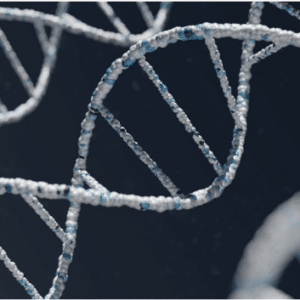What is Genetic Testing?
Sometimes, our DNA adopts some changes, mutations, or variants due to a variety of reasons, genetic testing, a kind of medical testing is used to check these changes. In other words, genetic testing is used to check changes in genes, chromosomes, or proteins. Any genetic disease can be identified by using this technology. A person can know the status of his/her body, diseases, with the help of genetic testing. Genetic conditions such as fragile-x syndrome(intellectual disability) can be diagnosed by using genetic tests and also gives information about the risk of your body having cancer. For instance, if there is a genetic disorder in your family, there is a high risk of you adopting the same disorder, in this case, a genetic test helps determine his/her chances of getting those disorders.
 Long Polymer made up of Nucleotides.
Long Polymer made up of Nucleotides.
With the help of genetic testing, mutations are identified in:
Gene tests are carried out to identify changes in genes that can cause the risk of genetic disorders. These can be at a narrow or large level. Examining the nucleotides that are individual DNA building blocks or genomes(all of a person’s DNA).
Chromosomal genetic tests are used to examine the whole chromosome or the large length of DNA to identify any large genetic change like an extra copy of the chromosome that can be responsible for any genetic condition.
Protein tests are used to analyze the activity level or amount of protein or enzyme, if any abnormality is found in these two then there must be a DNA change that results in any genetic condition.
Different types of genetic tests
There are different kinds of genetic tests which are done for a specific condition. There are different genetic tests for different conditions. There is no technology in which all the conditions can be identified using one type of genetic testing. Some of the genetic testings are:
- Single gene testing: Identifying changes in only one gene. This single-gene testing is done when Dr. examines that you or your child have symptoms of any specific conditions or syndrome. Duchenne muscular dystrophy(muscle weakness) or sickle cell disease(blood disorder inherited from a child’s parents) are some of the examples. When there is a known genetic change in a family, single-gene testing is used.
- Panel testing: looking at more than one gene in a single test is called panel testing. These are also grouped in different categories depending upon the medical condition. Low muscle tone, epilepsy, or short stature are some of its examples. This test is also grouped into genes that are all associated with causing a higher risk of certain types of cancer such as breast and colorectal colon cancer.
- Large-scale Genetic or Genomic testing: It includes two different kinds of large-scale genetic testing, they are:
Exome sequencing: examining all the genes in the DNA(whole exome) or only those genes which are related to any genetic conditions.
Genome sequencing: It includes examining all of a person’s DNA, not a single gene or a few genes. It is the largest genetic test.
Types of Results these Genetic Tests give
Positive: If there is any genetic change found, it means a person is suffering from a certain condition or likely to get a condition in the future.
Negative: The test didn’t find any genetic mutations which are known to cause certain diseases. Sometimes negative results occur when the tests are wrong conducted or the person’s syndrome does not cause any genetic change.
Uncertain: It shows uncertain results when there is no proper information about the genetic change to identify whether it is benign or cancerous.
Pros and Cons of Genetic Testing
People are getting more aware of modern technologies, genetic testing is also one of the technologies that are establishing its roots in society. But any technology with so many advantages also possesses some negative points which are very crucial to consider.
Pros
Treatment of disease: genetic tests can be considered enormous valuable if the right genetic tests for the right individual are carried out, which would allow a Dr. to recommend specific treatment.
Changing lifestyle for disease prevention: If a person is detected with any variant before actually showing the symptoms then he/she can change their lifestyle in a manner to decrease the chance of getting that condition.
Cons
Increase stress: Knowing about the risk of getting a disease in the future can be very stressful, this can make you vulnerable and weak.
Cost: of course, it is a very costly process.
Privacy concerns: It is the matter of handing over our personal information in someone else’s hands. Who have the access to these details? Who controls this informations?
Technology is taking over the world and it’s beneficial too but everything has two aspects and both the aspects have to be considered properly to make any decision. Genetic testing is very beneficial in identifying various diseases but yet a lot of development is required to make it accurate.
10/01/2022






